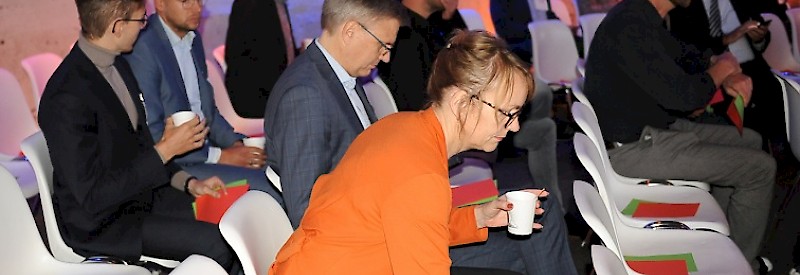The Annual Public Finance Congress on 30 September hosted a roundtable session organised by Improven on hybrid working.
If the corona pandemic has taught us one thing, it is the art of working from home. Resulting, among other things, in fewer traffic jams, less CO2 emissions and fewer peaks in public transport. Consequently, most Dutch people do not want to return to the old way of working. It looks like hybrid working has become the new normal, promising more flexibility and lower costs by working smarter and digitising further.
But how do we then realise these cost savings? What investments are needed up front? How can we let employees enjoy working remotely? How do we keep a grip and an overview? And how can we roll out the necessary technology at low cost with maximum security? All questions that will end up on the finance professional's plate in the near future.
In this roundtable meeting, facilitated by Improven, it explored how to successfully use the lessons of working from home for the future and how to financially anticipate the post-corona period.
Because of the Corona crisis, we as working people in the Netherlands found out that it is actually quite nice to work at home a few days a week. Many government agencies are therefore switching to hybrid forms of work: some at home, some in the office and some with laptops on their laps on the beach.
We wouldn't be at a Public Finance conference if we didn't all want to know what impact the new way of working has on the organisation's bottom line. At consultancy firm Improven, they have now run a few projects in the field of hybrid working, including at the municipality of Utrecht and some smaller municipalities. Experienced consultants Oscar van Leeuwen and Maarten Mookhoek of Improven have gained quite a bit of knowledge in the field of hybrid working over the past few years and engaged with the audience to look at hybrid working from the perspective of the finance professional.
Real estate is obviously the main angle where the opportunities lie. After all, if fewer people are needed in the office, you need fewer (flex) workspaces and therefore a lot of real estate can be taken out. Nice, especially in times of high market prices. On the other hand, there are also a lot of extra costs associated with hybrid working - think laptops, phones and office chairs. It is important to keep a close eye on these costs, which is not always easy, especially when a quick switch was needed to build up the home working situation quickly.
One concern, however, is that not all items of hybrid working fall under the same heading or responsibility, so there are not always good and coordinated policies to be followed between the different budgets - do computers fall under IT, overhead or working conditions? And where does real estate sit? So the advisers stressed that it is good to coordinate these things internally. (Another striking observation: it is precisely in smaller municipalities where budgets are smaller and financial departments are correspondingly limited that it is easier and quicker to switch to the new situation than in larger, more complex cities, is the experience).
Another hot topic is the effect of hybrid working on employee productivity and, ergo, what the impact is on staffing costs. Do people work better from home, or do they just sit around Netflixing when the boss is not looking? The opinions and experiences in the room varied widely, but the consensus in the end was that, with possibly some other ways of managing and measuring productivity, quite a lot of gains could be made, especially since concentration can go up quite a bit in a home office.
One of the key points of discussion was whether this hybrid working should be imposed from above or whether it works best if people are allowed to arrange their own working rhythm - and there is of course something to be said for both sides. The lively and interactive session was ultimately far too short to discuss all the ins and outs of the budget implications of hybrid working, but strengthened by new insights and experiences, the room was able to return to the (home) office to tinker further with the ideal working situation.
This article was also published on Financial-management.co.uk: https://financieel-management.nl/artikelen/van-noodverband-naar-permanente-oplossing-hybride-werken/






















